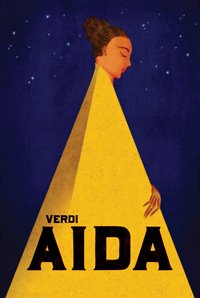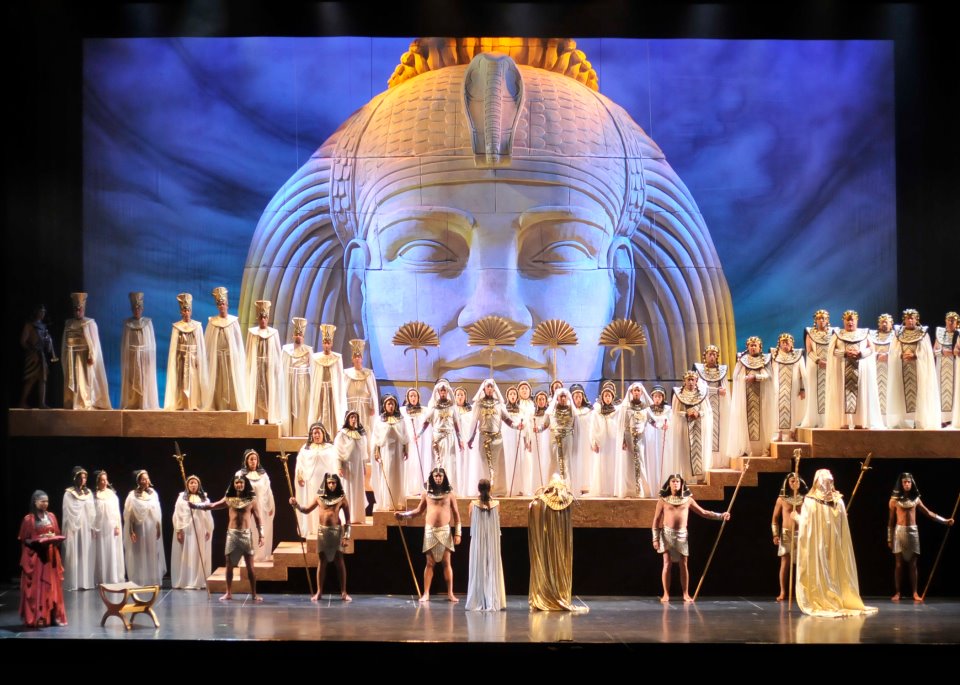 APRIL 17, 2012 —Baritone Alan Macdonald will complete his Master of Music in Opera from UBC this May. He takes a few moments to share his experience singing in Vancouver Opera’s chorus for Verdi’s masterful grand opera, Aïda.
APRIL 17, 2012 —Baritone Alan Macdonald will complete his Master of Music in Opera from UBC this May. He takes a few moments to share his experience singing in Vancouver Opera’s chorus for Verdi’s masterful grand opera, Aïda.
(JK) Have you had much chorus experience prior to this? If so, how does Aïda differ?
(AM) Over the past two years at UBC I’ve sung in the choruses of Don Giovanni, Cendrillon, and most recently Rusalka. Before that I was in the chorus of Opera New Brunswick’s production of Tosca (where I was both an altar boy and firing squad gunman – how’s that for versatility?) Aïda is, by far, the most chorus-heavy production I’ve ever done. I’d say the sheer amount of music would be the biggest difference!
(JK) What is it like being part of such a large-scale professional production such as Aïda? Can you please describe the process a little?
(AM) The biggest adjustment in being a part of a professional production is the timeframe you have to work in. Our first chorus music rehearsal was only four short weeks ago and we started staging rehearsals the week before last. After less than a week of staging rehearsals the entire opera was “on its feet” and we were doing full runs!
(JK) Have you had any previous involvement with Vancouver Opera?
(AM) This will be my first time on stage with Vancouver Opera, but I was lucky enough to participate in VOA’s Pre-Professional Internship Program this year (where I understudied the roles of The Father/Witch in the school-touring production of Hansel and Gretel) as well as taking part in the Young Artist Coaching Intensive where I was able to spend a week working one-on-one with Maestro Robert Tweten (conductor of VOA’s production of Il Barbiere di Siviglia).
(JK) Aïda is a dream role for some sopranos. What is your dream role and why?
(AM) Does that mean I can’t say Aïda? My “baritone” dream roles would have to be Figaro in Il Barbiere di Sivilgia and Pelléas in Debussy’s Pelléas et Mélisande. Figaro because he is one of the most fun characters (both musically and dramatically) in operatic repertoire and Pelléas because I’m a sucker for Debussy’s music (seriously, it’s so beautiful) and a sucker for a good tragic love story.
(JK) What do you feel has been the most valuable aspect of this experience?
(AM) There are so many invaluable elements of working in a professional environment, but for me I have to say being on stage and in rehearsals with the leads has had the biggest impact – being able to watch professional singers “on the job” isn’t something a lot of young singers get to experience in school! Shadowing these artists and watching how they work in rehearsals has been so educational and inspiring, just watching them embody these characters and sing this music so beautifully is worth countless hours in the practice room.
(JK) If you could sum up Aïda in one word, what would it be?
(AM) Awesome (in both the pre and post 80’s definition of the word).
(JK) Thank you for your time Alan. Can you tell us where we can find you next after Aïda?
(AM) Absolutely! In June, I’ll be singing and dancing on stage as Danilo in The Merry Widow with UBC Opera and then this summer I’m headed to Alberta to perform in Irish composer Stephen McNeff’s adaptation of The Secret Garden with The Banff Centre’s Opera as Theatre program.
Don’t miss Vancouver Opera’s production of Aïda which runs April 21 – May 3 at the Queen Elizabeth Theatre.
Other UBC Opera students in the chorus: DJ Calhoun, Matt Chittick, Jordan Collalto, Julia Kot, Kwangmin Brian Lee, Nickolas Meyer, Heather Molloy, Saygin Ozgu, Richard Petroski, José Ramirez-Solano, Micah Schroeder, Brandon Thornhill, and Christopher Max van Wyck.
UBC Opera Alumni in the chorus: Andrey Andreychik, Ricarido Gimena, Paul Just, Lisa-Dawn Kilthau, Katherine Landry, Margo Levae, Martin Sadd, Sylvia Szadovszki, and Christine Turingia.
UBC Students as Supernumeraries in the production: Adam Da Ros and Mark Pepe.


 Follow
Follow